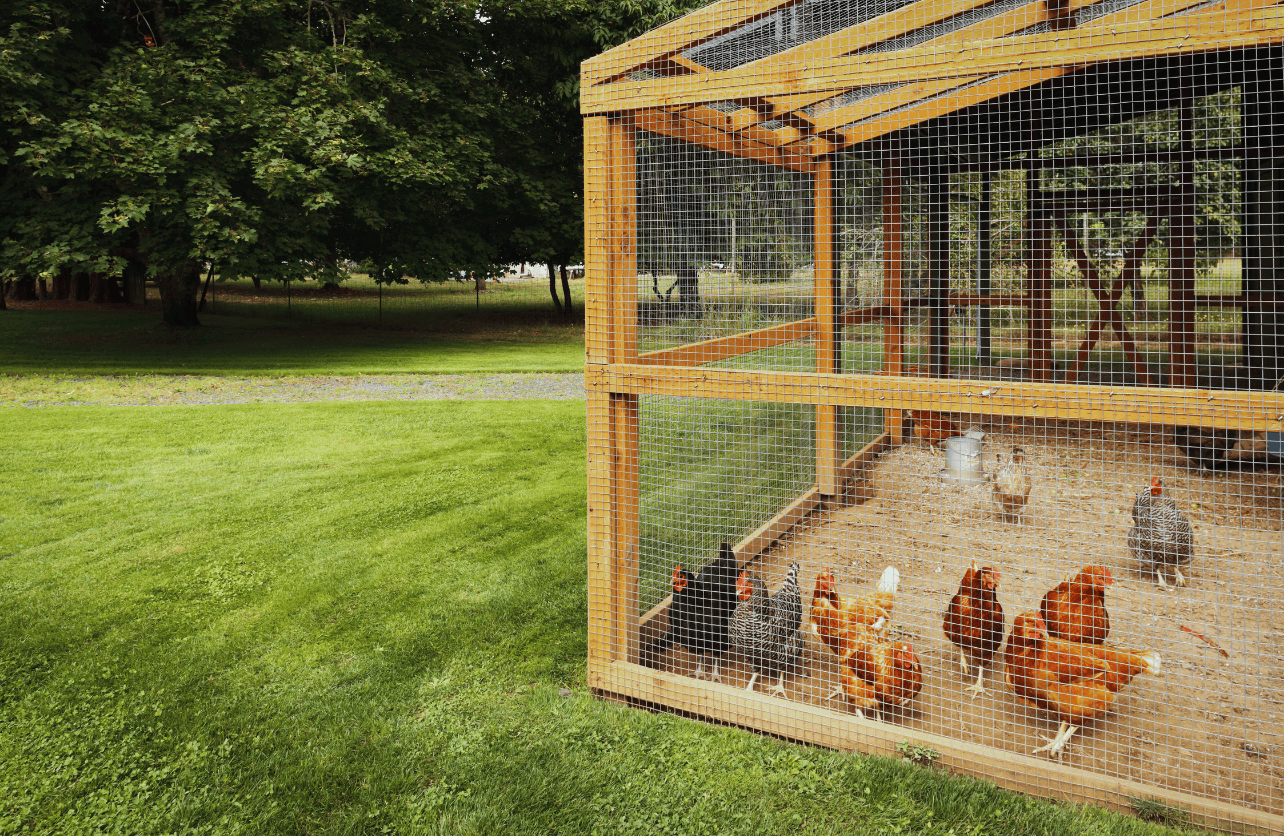How to Keep Your Chicken Coop Odor-Free

Keeping your chicken coop odor-free is essential for the health and comfort of your flock—and for your own sanity! A clean, well-maintained coop not only reduces unpleasant smells but also helps prevent health issues like respiratory problems in your chickens. Here’s a practical guide to managing odors in your chicken coop, complete with cleaning tips and product recommendations to make the process easier.
Why Do Chicken Coops Smell?
The main culprits behind a smelly chicken coop are moisture, ammonia, and waste buildup. Chicken droppings, leftover food, and damp bedding can combine to create an unpleasant odor, especially in poorly ventilated coops. Over time, these conditions can lead to ammonia buildup, which is not only foul-smelling but also harmful to your chickens’ health.
Practical Solutions for an Odor-Free Coop
Maintain Proper Ventilation
Good airflow is critical to reducing odors. A well-ventilated coop helps to dissipate moisture and ammonia buildup, keeping the air fresh. Ensure that your coop has adequate windows, vents, or fans to allow for continuous air circulation.
Pro Tip: Use adjustable vents to maintain ventilation during colder months without creating drafts that could chill your flock.
Regular Cleaning Routine
Cleaning your coop on a regular schedule prevents waste and moisture from accumulating. Remove droppings, wet bedding, and uneaten food at least once a week, or more frequently if necessary.
- Daily Tasks: Scoop droppings from perches and nesting boxes.
- Weekly Tasks: Replace soiled bedding and scrub feeders and waterers.
- Monthly Tasks: Deep-clean the coop, washing down walls, floors, and perches with a mild, pet-safe disinfectant.
Use Odor-Neutralizing Products
Adding odor control products to your coop can significantly improve the freshness of the environment. Look for natural, pet-safe options to avoid introducing harmful chemicals.
- Coop Deodorizers: Products like the Spanielbuns Chicken Coop Refresher neutralize ammonia and absorb moisture. Simply sprinkle the powder on bedding or in high-traffic areas.
- Odor-Control Sprays: Options like the Hatortempt Chicken Coop Deodorizer Spray are great for spot-treating stubborn smells in specific areas.
Choose the Right Bedding
The bedding you use plays a big role in odor control. Pine shavings and hemp bedding are excellent options because they are highly absorbent and minimize moisture buildup. Avoid materials like straw, which can hold moisture and encourage mold growth.
For added odor control, consider using a product like Manna Pro Fresh Flakes, which offers superior absorbency and helps to neutralize ammonia smells.
Manage Moisture Levels
Moisture is one of the biggest contributors to odors in a chicken coop. Keep waterers elevated and far from bedding to prevent spills, and address any roof or wall leaks immediately.
Tip: Use sand as a flooring material—it drains well, dries quickly, and is easy to rake clean.
Encourage a Dust Bath Area
Dust baths not only keep your chickens healthy but also help reduce odors. When chickens have access to a proper dust bath, they can clean themselves of parasites and oils, reducing the need for excessive cleaning.
In a covered area of the coop or run, create a dust bath area with a mixture of sand, dirt, and diatomaceous earth.
Compost Chicken Waste
Instead of letting droppings accumulate, turn them into compost. Chicken manure is rich in nitrogen and makes excellent fertilizer for your garden. Set up a compost bin nearby to dispose of waste regularly and efficiently.
Final Thoughts
Maintaining an odor-free chicken coop isn’t as daunting as it might seem. By focusing on ventilation, regular cleaning, moisture management, and the right products, you can create a fresh, healthy environment for your hens. With these tips, your coop can stay clean and pleasant, ensuring happy chickens and happy owners alike.
Pro Tip: Regularly monitor for any persistent odors, as these could signal deeper issues like poor drainage or illness in your flock. Keeping a close eye on your coop’s condition will help you address potential problems before they escalate.
By prioritizing cleanliness and odor control, you’ll set the stage for a thriving flock and a more enjoyable chicken-keeping experience.
Your Pet’s Best Interest, Always
At Pet Institute, we take pet care seriously. We're dedicated to transparency, impartiality, and the well-being of your pets in every article, review, and recommendation we provide. Our unwavering commitment to these principles ensures that you, our valued reader, always receive reliable and unbiased information. Let us be your trusted guide in the world of pet care and companionship.